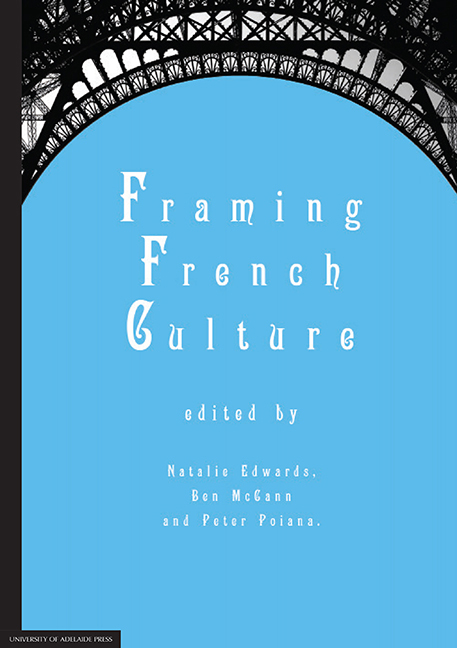Book contents
13 - Art and origin: Bataille and Blanchot's return to Lascaux
from Part 4 - Artistic framings
Published online by Cambridge University Press: 05 February 2016
Summary
Georges Bataille and Maurice Blanchot's mutual interest in the Lascaux cave paintings signals their common concern to construct a discourse of origin in relation to art. Both writers consider origin in terms of the anxiety-filled questioning surrounding the ontological and historical aporias that have plagued Western thought, including those that appear under the banner of the Modern and the Postmodern. Both ask: what kind of discourse presides over the disconcerting doubling of reality performed by the first artists? For Bataille, origin is bound up with the ritual significance of eroticism and death as these underpin all forms of artistic endeavour; Blanchot, for his part, focuses on the existential void that takes up residence at the centre of all poetry and art.
In attempting to break with tradition, modern art and literature heralded a period of anxious questioning in relation to origin. James Joyce, in Ulysses, illustrates the modern preoccupation with origin by making his young characters recall impertinently their forebears:
— Pooh! Buck Mulligan said. We have grown out of Wilde and paradoxes. It's quite simple. He proves by algebra that Hamlet's grandson is Shakespeare's grandfather and that he himself is the ghost of his own father.
— What? Haines said, beginning to point at Stephen. He himself?
The youthful disdain of their illustrious forefathers brings the young men all the more surely to the question of origin: who are we to claim absolute knowledge, given that we have done no more than appear in the shadow of our fathers?
Joyce's insights find their theoretical underpinnings in the work of Michel Foucault, particularly in his historico-philosophical account of the Modern reconfiguration of the concept of origin. In Les Mots et les choses, Foucault points to the radical change that occurred around the middle of the nineteenth century in the manner of thinking about origin. From this moment, it was no longer possible to define origin solely in terms of the presence or absence of an external authenticating instance (such as God, Nature, Man). Instead, origin came to signify an enigmatic relation to being. What one ‘is’, essentially, is a condition of the invisible founding principle from which one emanates.
This is a theme that permeated twentieth century thought via the human sciences in particular, inasmuch as the latter aimed essentially to redefine the workings of language, …
- Type
- Chapter
- Information
- Framing French Culture , pp. 275 - 291Publisher: The University of Adelaide PressPrint publication year: 2015



